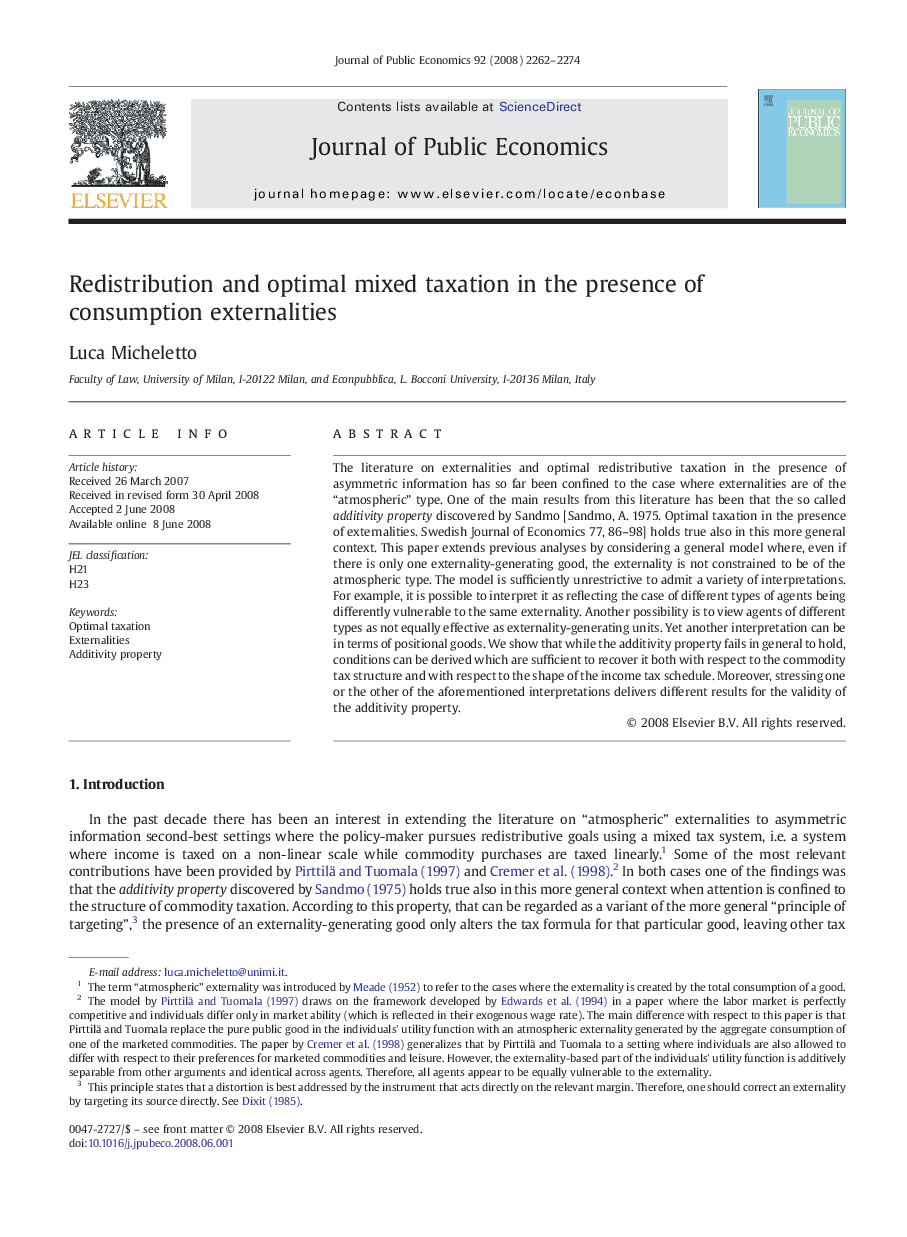| Article ID | Journal | Published Year | Pages | File Type |
|---|---|---|---|---|
| 970264 | Journal of Public Economics | 2008 | 13 Pages |
The literature on externalities and optimal redistributive taxation in the presence of asymmetric information has so far been confined to the case where externalities are of the “atmospheric” type. One of the main results from this literature has been that the so called additivity property discovered by Sandmo [Sandmo, A. 1975. Optimal taxation in the presence of externalities. Swedish Journal of Economics 77, 86–98] holds true also in this more general context. This paper extends previous analyses by considering a general model where, even if there is only one externality-generating good, the externality is not constrained to be of the atmospheric type. The model is sufficiently unrestrictive to admit a variety of interpretations. For example, it is possible to interpret it as reflecting the case of different types of agents being differently vulnerable to the same externality. Another possibility is to view agents of different types as not equally effective as externality-generating units. Yet another interpretation can be in terms of positional goods. We show that while the additivity property fails in general to hold, conditions can be derived which are sufficient to recover it both with respect to the commodity tax structure and with respect to the shape of the income tax schedule. Moreover, stressing one or the other of the aforementioned interpretations delivers different results for the validity of the additivity property.
